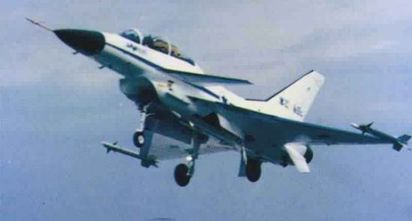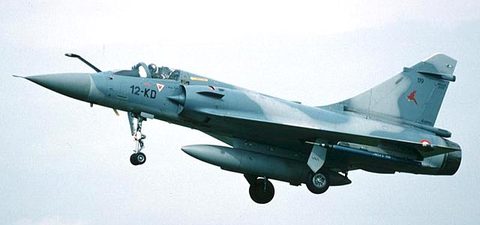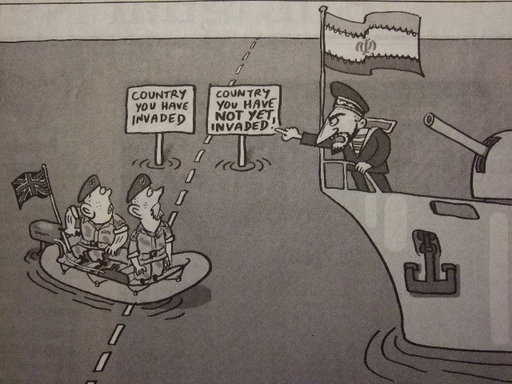This is a pretty pro-Israel blog, but I can hardly rip the Europeans for wanting to sell weapons to China, and then give Israel a pass on this one. From the Weekly Standard:
In 1987 [Israel Aircraft Industries] was forced to cancel a program to build an indigenous fighter, the Lavi (Lion). The Lavi was a modified version of the Lockheed Martin F-16 already being used by the Israeli Air Force, but cost significantly more than the U.S.-made fighter. So the Israeli Air Force opted to stick with the off-the-shelf model.
Some time later, the technical details of the Lavi were provided to [China's Chengdu Aircraft Industry Group], although no government has ever officially acknowledged this fact. When the J-10 was rolled out in a public ceremony in Beijing late last year, a report in the Singapore Straits Times noted the obvious: "The Jian-10 aircraft that China unveiled recently bears a striking resemblance to the Lavi. . . . The Jian-10's sophisticated pilot helmet, which allows missiles to be aimed in the direction of the pilot's eyes, is almost certainly of Israeli origin. So are the missiles themselves, which appear to be based on the Python 4 variety manufactured by Israel's Rafael Armaments Development Authority. Neither side will admit it, but the Lavi aircraft died in Israel and has now been reborn in China." [emphasis added]
And now the J-10 menaces Taiwan. Thanks ever so much for that. But as it turns out, the sale managed to turn around and bite the Israelis in the end:
In late October, the Russian newspaper Kommersant reported that China's Chengdu Aircraft Industry Group will sell 24 of its new-generation Jian-10 (J-10) fighter aircraft to Iran in a contract valued at $1 billion.
[…]
Last week, the Paris-based defense and strategy publication TTU reported that China is planning to supply the J-10 to Syria as well.
So, Israel sold fighter designs to China, which then sells the completed jet fighters to IRAN and SYRIA. THAT deal certainly worked out well, didn't it? It gives me no pleasure to say this, but what the hell were you guys THINKING?

(Jianjiji-10 image from Aerospaceweb.org)
Meanwhile, the French want in on the action:
France's Délégation Générale pour l'Armement (DGA), which tightly controls all arms export sales, has been trying for more than a year to complete a sale of the Thales RC400 radar and MBDA Mica missiles to Pakistan for the JF-17 fighter. Although the JF-17 is being built under license in Pakistan, it is also a Chengdu design. The Pakistani Aeronautical Complex and its Chinese partners have comprehensive agreements that grant access for both parties to any technology acquired by the other.
Since the same French radar and missiles are on board the Taiwanese Air Force's French-built Dassault Mirage 2000 aircraft, acquisition of this technology by Beijing would be a considerable blow to the defense of the island nation. India, Pakistan's neighbor and rival, also operates the Mirage 2000. If France's DGA were to allow Pakistan to acquire the radar and missiles, Taiwan and India would see their air force's investment in French jets wiped out. [emphasis added]
The Standard goes on to say that Taiwan's investment would be wiped out because the Pakistanis have not proven themselves to be overly scrupulous in keeping Western defense technologies out of Chinese hands.

(Mirage 2000 image from Airforceworld.com)
UPDATE (Mar 3/09): Former Soviet republics also selling hardware to China.
i-2
